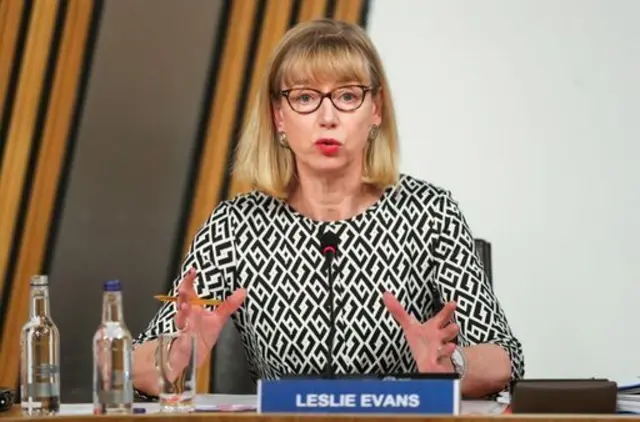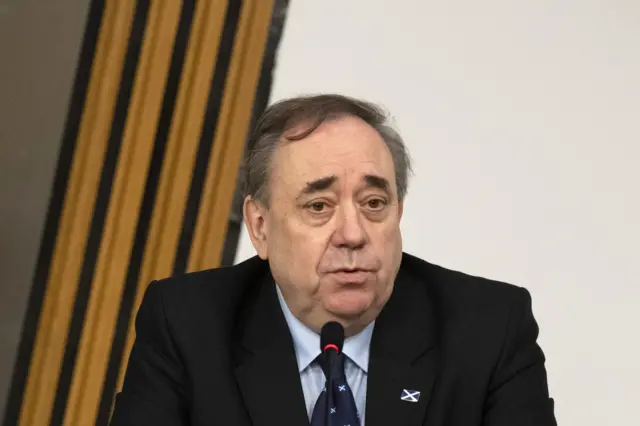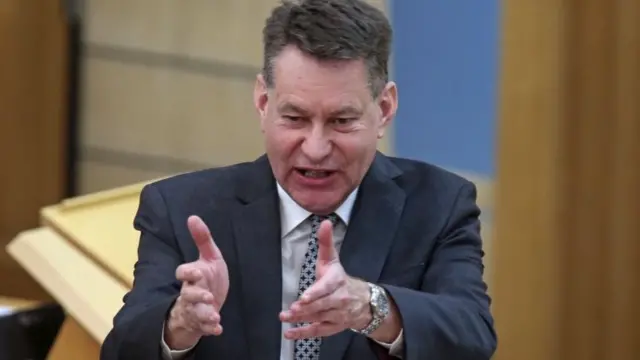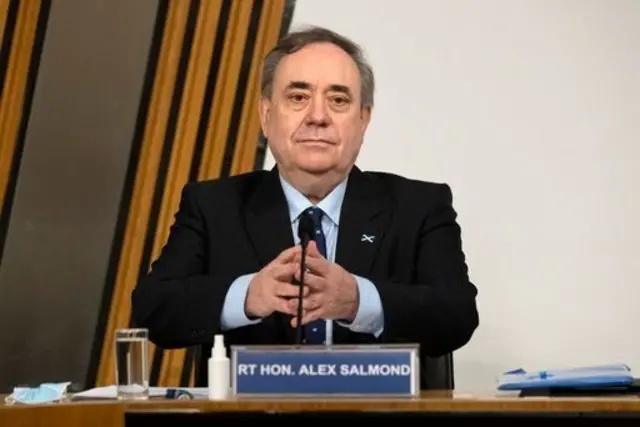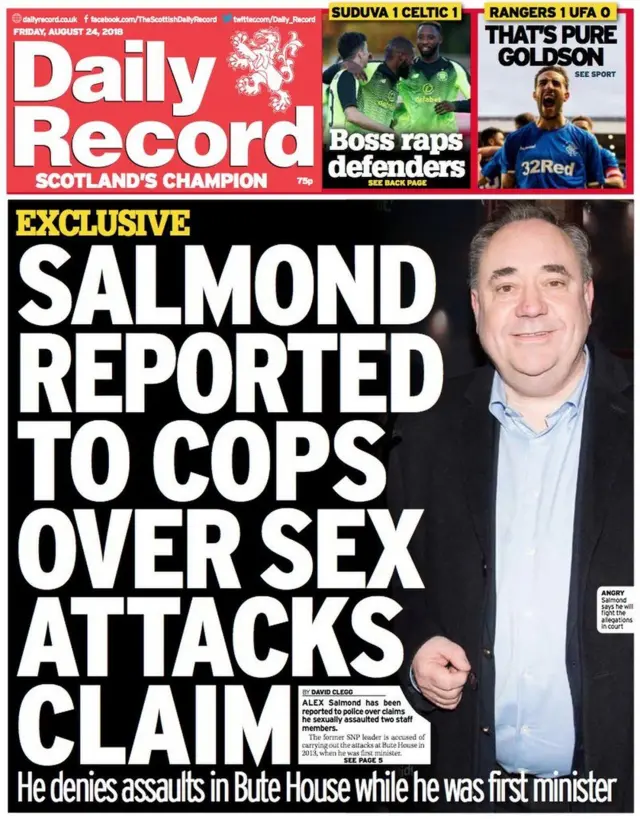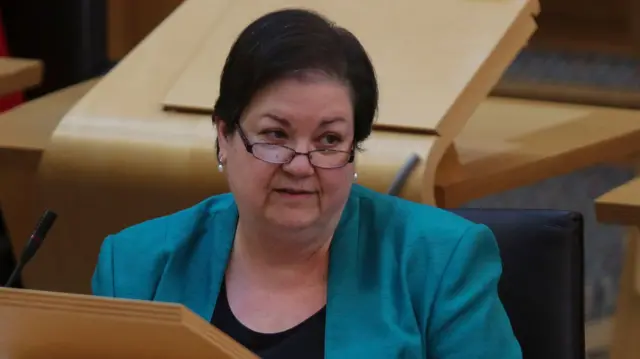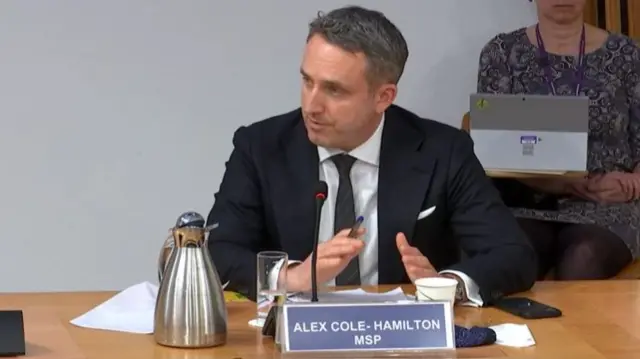Salmond: 'Spectacular' failure to disclose documentspublished at 16:44 GMT 26 February 2021
Labour MSP Jackie Baillie asks if, when the committee asked for information in the complaints handling phase, there were still documents which Mr Salmond's legal team had not seen.
He says there were 40 or so documents that his team had never seen before, which he described as "spectacular".
Mr Salmond says the "most spectacular of these, but by no means the only example, is a series of documents which demonstrated that the permanent secretary had met the complainants, one complainant, and telephoned the other" on 6 March 2018.
That was the day before he was informed of any complaints, he adds.
Mr Salmond asks why that was not disclosed in the civil case, and says the Crown Office either did not receive the document or did not disclose it to his team. He says that was "beyond imagination" and an "obstruction of justice".
Ms Baillie also asks if Mr Salmond believes the permanent secretary has discharged her duties in line with the civil service code.
"No," he replies.

